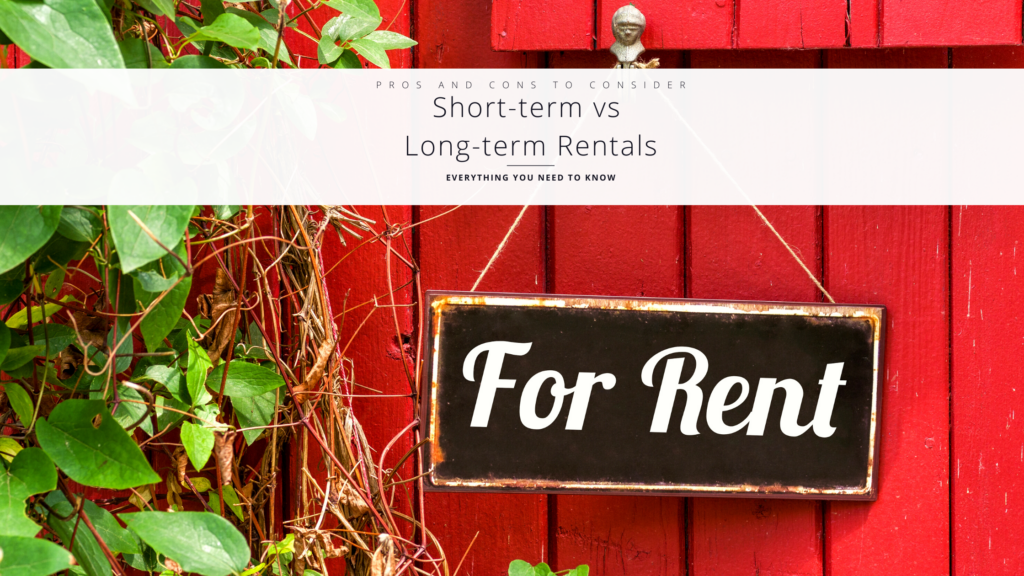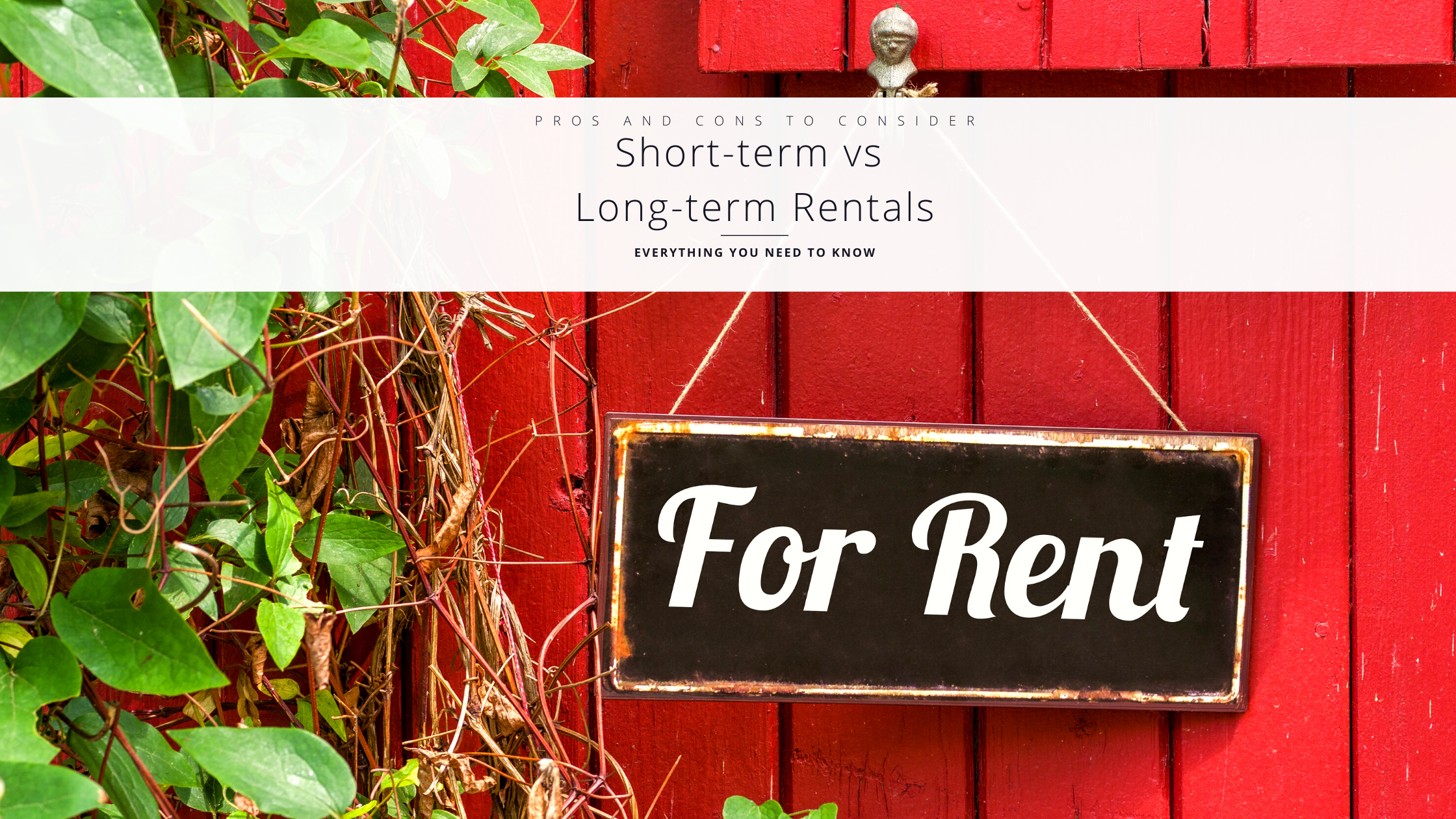Rental Property Pros and Cons to Consider

One of the biggest decisions that rental property owners have to make is whether to rent out their properties on a short-term or long-term basis. Both options come with their own set of advantages and disadvantages. It’s important to carefully consider your options before making a decision. In this blog post, we’ll explore the differences, pros, and cons of short-term and long-term rentals.
Short-term rental properties
Short-term rentals refer to rentals that last less than 30 days. They are usually marketed toward vacationers, tourists, and business travelers. Here are some of the pros and cons of short-term rentals:
Pros
- Higher rental rates: Since short-term rentals are usually priced on a nightly basis, they tend to generate higher rental rates than long-term rentals. This is especially true during peak seasons when demand for short-term rentals is high.
- Flexibility: With short-term rentals, property owners have the flexibility to rent out their properties for as little or as much time as they want. This means that they can block off dates when they want to use the property themselves or when they don’t want to rent it out.
- Tax benefits: Property owners who rent out their properties on a short-term basis may be eligible for certain tax benefits, such as being able to deduct expenses related to their rental activities.
Cons
- Higher turnover: Since short-term rentals are rented out on a nightly basis, property owners have to deal with a higher turnover rate. This means more cleaning, maintenance, and management responsibilities.
- Seasonal demand: Short-term rentals are highly dependent on seasonal demand. During the off-season, property owners may struggle to find renters, which can result in a loss of income.
- Regulations: Many cities and municipalities have regulations that govern short-term rentals, which can be complex and time-consuming to navigate. Property owners may also face fines and legal action if they don’t comply with these regulations.
Long-term rental properties
Long-term rentals refer to rentals that last longer than 30 days. They are usually marketed toward tenants who are looking for a more permanent living situation. Here are some of the pros and cons of long-term rentals:
Pros
- Stable income: Long-term rentals provide property owners with a stable source of income since tenants sign leases that typically last for several months or years.
- Lower turnover: Since tenants sign leases for longer periods of time, property owners don’t have to deal with as much turnover as they would with short-term rentals.
- Easier management: Long-term rentals are generally easier to manage since tenants take care of the day-to-day maintenance and cleaning of the property.
Cons
- Lower rental rates: Long-term rentals usually generate lower rental rates than short-term rentals. This means that property owners may have to wait longer to recoup their investments.
- Limited flexibility: With long-term rentals, property owners have less flexibility since tenants sign leases for specific periods of time. This means that property owners can’t use the property themselves or rent it out on a short-term basis during the lease period.
- Tenant screening: Property owners have to carefully screen potential tenants. This is to ensure that they are reliable, responsible, and will take care of the property.
Deciding whether to rent out your property on a short-term or long-term basis is a big decision that should be carefully considered. Short-term rentals can provide higher rental rates and greater flexibility. They also come with higher turnover rates and more regulations. Long-term rentals, on the other hand, provide stable income and easier management. They offer less flexibility and lower rental rates.
Ultimately, the decision to rent out your property on a short-term or long-term basis will depend on your personal goals, priorities, and the specific characteristics of your property. Weighing the

leave a comment
share
share
share
share
share